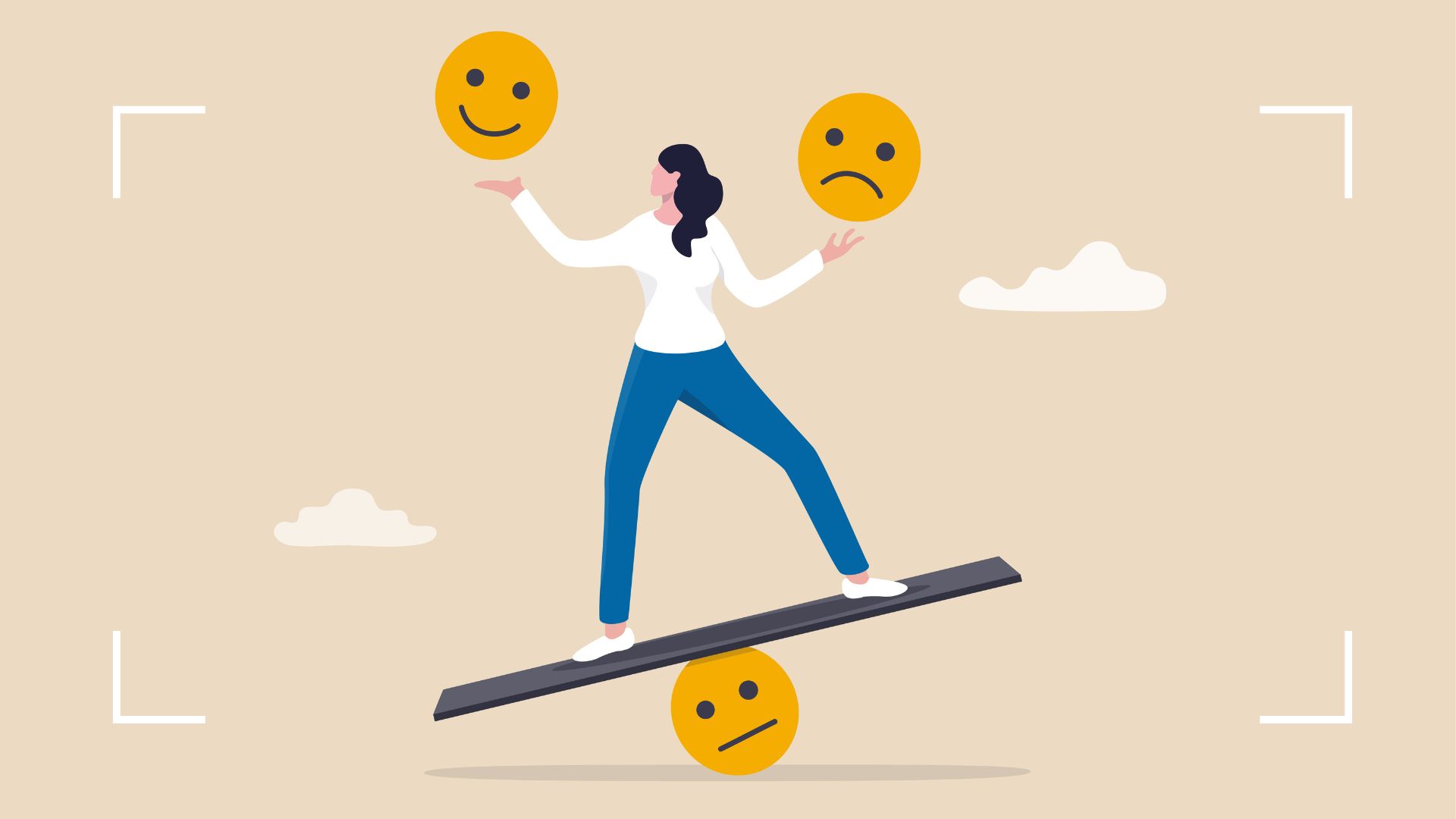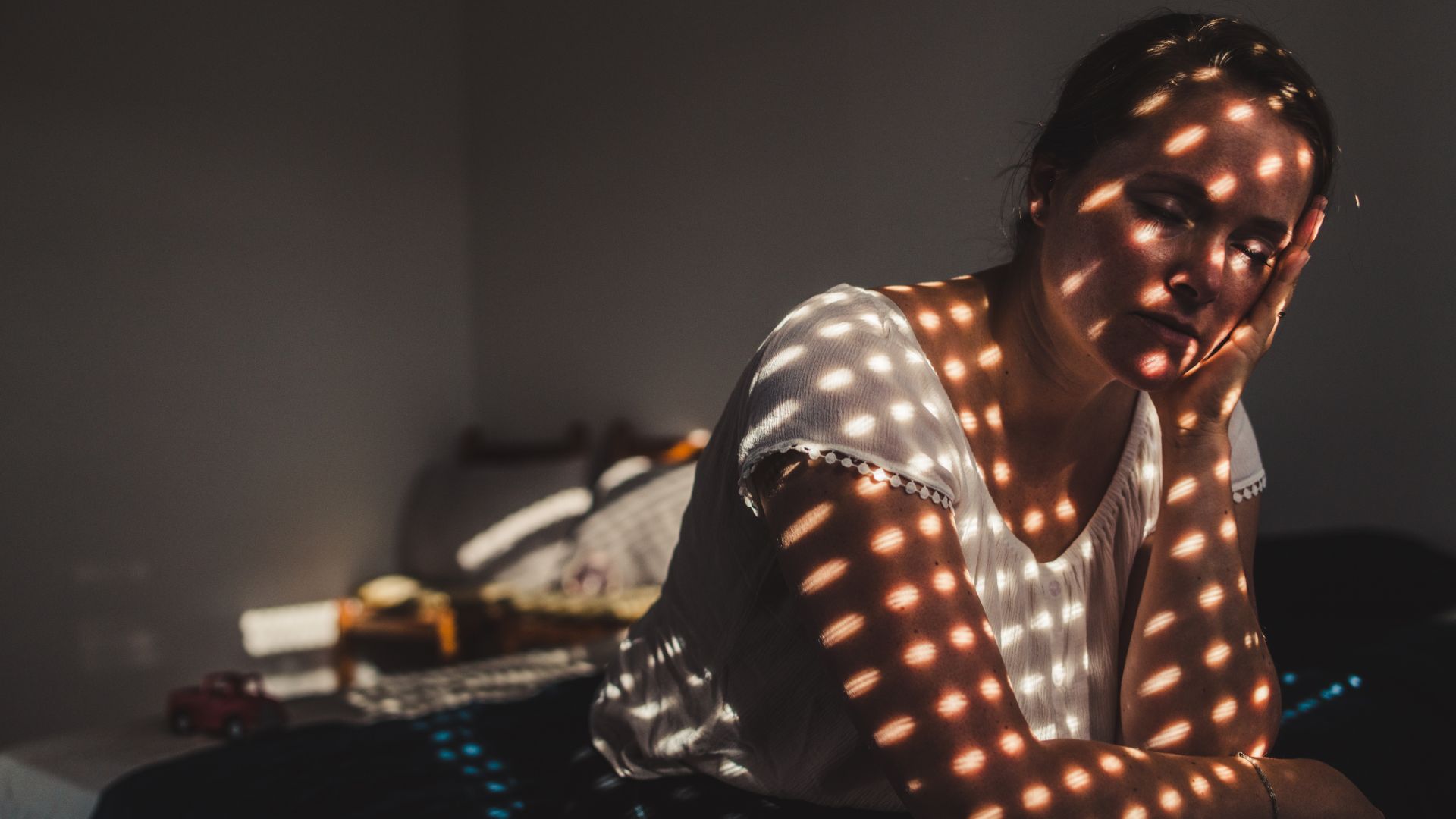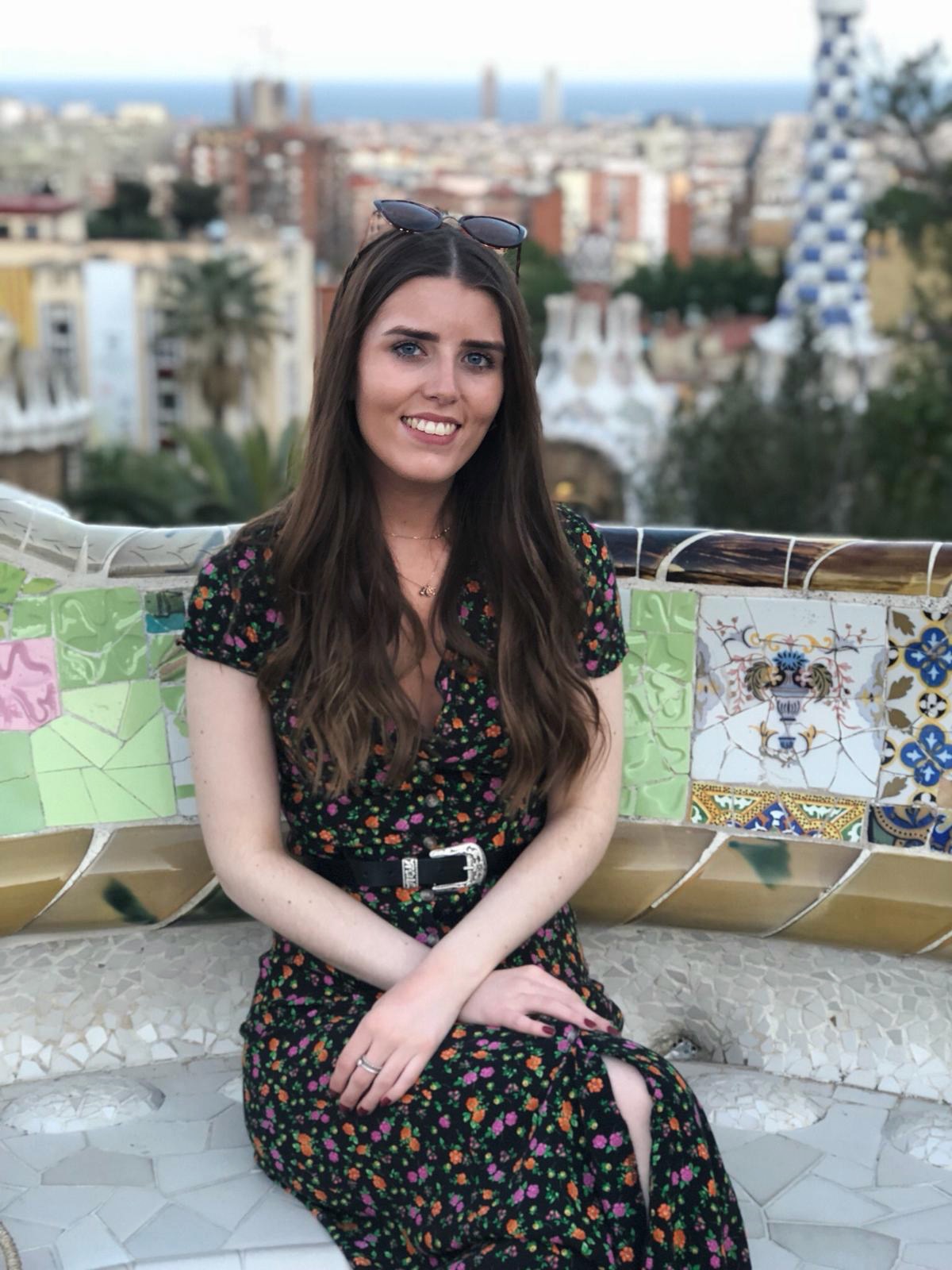What does burnout feel like? 3 women reveal the unexpected symptoms to look out for
Women get candid on work, caregiver, and dating burnout to reveal what it really feels like


What does burnout feel like? Burnout might be defined by the World Health Organization as an "occupational phenomenon", one resulting from chronic workplace stress that remains unmanaged, but those who've experienced it say it's much more complicated than this.
Burnout can be defined in more ways than one, with work-related burnout just one of the many causes out there recognized by psychologists and medical professionals alike. While it's arguably the most common, it's also possible to experience burnout from factors outside of work, such as family, friends, romantic relationships, and a combination of them all.
It follows then that what burnout feels like will differ from person to person based on a whole number of factors. Here, woman&home speaks to three women about their own experiences and how to recover from burnout, plus we've consulted the experts on signs to watch out for and tips for dealing with it.
What does burnout feel like?
Teresa Lodato was living what seemed like a picture-perfect life in California with a successful career in finance at a top Wall Street firm. But, a combination of workplace stress, a difficult marriage, and the responsibilities that come with being a mom of a young child, led Lodato to her “rock bottom” in 2009.
“I’d wake up at 3:45 am to go to the gym, before commuting to a very demanding job," she tells us. "I’d leave at 4 pm to pick up my son, make dinner and do the bedtime routine. It was just wash-and-repeat all week long. Then, on the weekends, I’d suffer from really bad migraines and be unable to do anything.”
Lodato felt the impact of her habitual burnout physically with signs of high cortisol levels in women starting to manifest. She was extremely tired every day but also held an overwhelming sense of guilt around the idea that taking time to look after herself would seem like giving up on the other responsibilities in her life. When she did take time off at the weekends, her migraines would be so severe that she would be bed-bound.
"I was constantly trying to give it all and be it all."
“I was so tired," she recalls. "I felt like something needed to give, but my mother raised my sister and I to be strong women and the message was always don’t quit, give it your all. I was constantly trying to give it all and be it all, at work, at home, and in my marriage."
Sign up to our free daily email for the latest royal and entertainment news, interesting opinion, expert advice on styling and beauty trends, and no-nonsense guides to the health and wellness questions you want answered.
Eventually, Lodato was hospitalized after developing a rare form of migraine that causes stroke-like symptoms called hemiplegic migraines, which can be triggered by stress. One morning she woke up,"I looked in the mirror, and noticed one side of her face was "tortured with pain", her tongue began to swell and her left leg went numb.
“There’s no cure for this condition and my doctor said I would never work again. It was my rock bottom,” Lodato says. Before her hospitalization, she knew something needed to change but held an overwhelming belief that she should be able to do it all.

When Lodato eventually took time off to recover from burnout, she felt like she had lost a sense of herself. “I thought, ‘Well if I’m not a financial advisor or a financial specialist, who am I?’ There was a big tie-in with my ego."
The turning point came when she began to understand who she was beyond her work. Now, Lodato tells us she's living a life she loves, doing work she loves supporting women at their own ‘rock bottom’ as a leadership and relationship coach.
Putting boundaries in place and scheduling rest and time outside has been crucial to Teresa Lodato's recovery. “I also honor my body and give myself a day off if I wake up and I’m not feeling that power or that energy to work through the day. I'll move things around if I can," she says.
"I really started to unravel when I realized I didn't like myself anymore, especially as a parent."
A demanding job as a public health professor, along with juggling motherhood also led Dr Jacqueline Kerr, based in San Diego, to experience both work burnout and caregiver burnout in 2018.
"I didn't know it was burnout at the time, but I wasn't sleeping, I had high cortisol levels and my back teeth were cracked. After this first episode, I had panic attacks." Dr Kerr's experience severely impacted her mental health and it led to a cycle of suicide ideation. “I felt like my life was not worth living. I was doing everything I could to serve everyone and do all the right things, but it wasn’t working out."
“The message in our society is that we should parent like we don’t have a job, and work like we don’t have kids," she says but notes that caregivers have constraints on their time and can't meet the expectations of the ideal worker. “I really started to unravel when I realized I didn't like myself anymore, especially as a parent."
It was a situation that was both mentally and physically difficult to manage; bouncing between not feeling "good enough" at home or work, she says. “I was crying on the way to work because I felt I couldn’t do it all there and I was crying on the way home because I felt I couldn’t do it all here."
Dr Kerr opened up to her husband about how she was feeling, took a leave of absence from work, and started seeing a therapist. After her initial burnout, she returned to work for a short period before deciding to resign. “I had to talk my kids through my burnout and then through my changes at work. I told them I was firing myself and they loved that idea."
She now works to support women in leading change in the workplace and hosts a podcast called Overcoming Working Mom Burnout.
Understanding her inner critic, making mindset changes, and putting boundaries in place both in her work and with her family has helped Dr Kerr post-burnout. “When I’m not working, I’m present with my kids," she tells us. "When I’m working, I have to set boundaries with my kids too, and not feel guilty about it. That’s more of a challenge than closing my computer. My daughter has said to me ‘I know you’re doing it for me, you’re doing it so I can have a different life’, she really sees that, and that is so powerful.”
"I've got the battle scars."
For Nicky Wake from England, it was the endless swiping and unsuccessful relationships that led to her feeling constantly tired and overwhelmed - a state otherwise known as dating burnout.
Wake met her husband Andy online in 2002 and they spent many happy years together before he died in 2020. “We were living our best lives. He was my soul mate and we were blissfully happy,” she tells us.
As a widow with a young child, Wake turned to young widow meet-up groups to build a support network. During this time she also gave dating apps for relationships a try. However, in the years since Wake and Andy met online, the dating landscape had changed dramatically. “I couldn’t believe the pictures and the sexting, and some of the horrid stuff that now comes with online dating," she says.
It felt like an emotional weight being back in the dating game, especially as it wasn't a move she made by choice. “You’re sat on the sofa, scrolling, scrolling, scrolling, you get a match, and then they unmatch 10 minutes later and you have no idea why it happened,” she recalls. It was in these moments that Wake found herself overthinking.
She describes the experience as "utterly soul-destroying and depressing" at times, and admits she spent many a night on her sofa, feeling low at the thought that men would unmatch with her when they discovered she was a widow, and disappointed because she couldn't find the meaningful conversation she was looking for. The admin that came with online dating also felt exhausting, as she made small talk and researched her matches online before agreeing to meet in person.

“I want a deep connection, and I think that’s very hard to find on mainstream dating apps. I've had some good dates and some fun dates, but I've also had some shocking dates and I've got the battle scars to prove it," she tells us.
Knowing when to step away has been key to overcoming her dating and relationship burnout, as has cultivating positive relationships in other areas of her life. “You fall in and out of love with online dating, but you have to know when it’s not helping you emotionally or mentally, and then step away for some time."
Not relying on dates to fill her life with positive social experiences has also been vital. “Sometimes, a good night out with the girls fixes a lot of things," she says.
Wake used her dating burnout as inspiration to launch a dating website for widows and widowers, called Chapter 2. When we talk over the phone, she is actually in Australia taking Chapter 2 to the global stage after finding common ground with other users. Although still hopeful she will find love online, for ethical reasons, Nicky Wake chooses not to use her own dating platform and continues to look for love on mainstream apps. "I’m a big girl, and I persevere through it all because I think it will happen at some point. I know that online dating works, that’s how I met Andy."
What to do when burned out
There's no one-step guide to how to deal with burnout from work or emotional burnout and it's problematic to suggest recovery will look the same for everyone, says clinical psychologist Dr Sharon Grossman. "If you search the term on Google, you'll likely find: take two weeks off, go on vacation, journal, exercise, and set boundaries," she says, but it's much more nuanced than this. After all, it will depend on your physical and emotional symptoms, and what type of burnout you are experiencing.
Treatment for burnout can also be a long process and involve a lot of change, and even learning how to be happy alone sometimes, so be kind to yourself in the process of recovery, warns Dr Hana Patel, a clinical doctor and mental health expert. "It could involve changes at work, support from friends and family, changing work-life balance, diet, and exercise," she says.
To find the best burnout treatment for you, Dr Grossman suggests diving deep into the root cause of your stress. "Then you can create a customized recovery strategy," she adds.
No matter the type of burnout you're experiencing, whether that's work burnout, relationship burnout, or parental burnout, it's important to seek professional support. Speak with your doctor or work with a therapist, psychologist, or certified burnout coach to help you understand the cause of your burnout and how you can recover from it.
If you or someone you know is struggling with their mental health or having suicidal thoughts, there is help available. In the United States contact 998 Suicide & Crisis Lifeline on 988 - open 24/7. In the United Kingston contact Samaritans on 116 123 - open 24/7.
Ciara McGinley is a meditation practitioner and health journalist. She qualified as a meditation teacher with the British School of Meditation in 2020 and is the founder of Finding Quiet, a series of classes, workshops and retreats that combine meditation practices and mindfulness techniques to make mindful living realistic in an always-switched-on modern world. She is all about bettering that mind-body connection but believes wellness looks different to everyone.
Ciara is also the former Health Channel Editor at woman&home and has covered all things health and wellbeing for years, from fitness to sleep to relationships.
